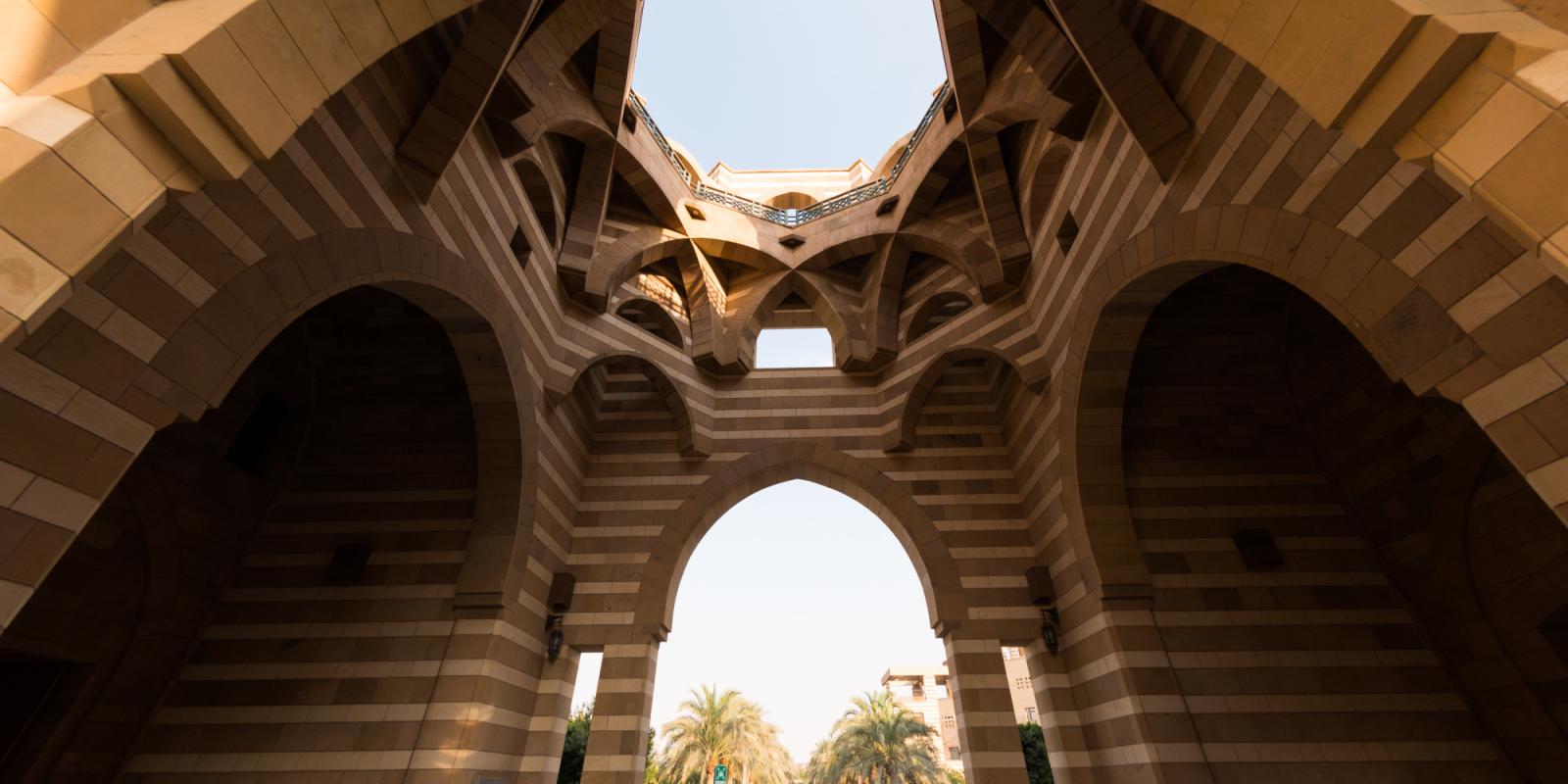
School of Humanities and Social Sciences Receives $1 Million Grant to Promote the Humanities in Egypt
Widely recognized as a hub for cultural and artistic expression, AUC’s School of Humanities and Social Sciences (HUSS) recently received a three-year, $1 million grant from the Andrew W. Mellon Foundation to fund a series of teaching, research and outreach programs administered through the HUSSLab research unit.
The program, titled Public Humanities for Egypt and the Global South, encompasses 20 activities designed to support faculty and graduate student research, innovative multidisciplinary teaching, public outreach and inter-institutional collaboration, as well as provide direct funding for workshop activities in the Center for Translation Studies and the Cynthia Nelson Institute for Gender and Women's Studies.
“AUC is seen as a crucial link," said Stephen Nimis, chair of the Department of English and Comparative Literature and director of the HUSSLab. "It is a University that the Andrew W. Mellon Foundation wants to invest in. The foundation sees that our strategic positioning between the Global North and Global South makes us a key center for forging north-south exchanges in the humanities.”
While the HUSSLab's main goal is to enhance research and resources among AUC faculty and students, its distinctiveness lies in its goal of reimagining and redefining topics, discussions and studies within the humanities throughout Egypt. This will be achieved by promoting partnerships with local and global institutions and prioritizing public outreach.
“Often, people think of those studying or working in humanities as isolated, in libraries reading books and working on their arcane studies,” said Robert Switzer, dean of the School of Humanities and Social Sciences. “But in philosophy, for example, Socrates was not in the library. He was out there in the community talking to people. This is a wonderful opportunity to re-engage the humanities in the broader world and reach out, not just to our MENA community, but the Global South as a whole, which is a huge part of the mission of the University and HUSS.”
The HUSSLab team is keen to spark exchange across the globe, with a special focus on Africa, Asia as well as South and Central America. “It’s important that faculty get interested in this,” affirmed Nimis. “This will definitely further their careers by allowing them to experience activities outside of their scope as professors at AUC.”
The program will commence by bringing notable international authors and academics to campus, partnering with institutions for faculty exchange programs in the Global South and both Georgetown and Northwestern universities, and conducting monthly roundtable discussions –– based on HUSSLab’s workshops –– at the University of Michigan to support pedagogical innovation.
Embodying the spirit of the humanities and social sciences, the program is combining all of its goals, spearheading conversations on humanistic topics and values through a series of public lectures, such as the HUSSLab Lecture Series and Cairo Conversations. The speakers, Nimis pointed out, will range from academics and non-academics to social and political activists. Moreover, forums and workshops will be arranged with members of reputable institutions in the fields of humanities, social justice and education, including the Women and Memory Forum as well as the Cairo Initiative for Liberal Arts and Sciences.
In collaboration with the translation studies centers at both AUC and the American University of Beirut, HUSSLab will also be holding Arabizing the Academy workshops to promote academic research and publications in Arabic to connect with the public across Egypt. They will also make available open-access, Arabic-language monographs on important topics.
The HUSSLab plans to expand its outreach strategies by holding three, six-day winter schools for non-academic professionals in Egypt who have a substantial interest in the humanities, but are unable to commit to regular academic research. AUC’s postgraduate and postdoctoral alumni are also encouraged to share their knowledge by applying for fellowships.
The program team hopes to integrate other disciplines into the field of humanities and strengthen AUC’s position in the region and around the globe. “The first grant can be the beginning of many great things happening down the road,” asserted Nimis. “The Andrew W. Mellon Foundation sees us as a 20-year investment, expecting us to come back with other ideas and projects. Everyone should always be thinking of new ideas for now and the future.”
